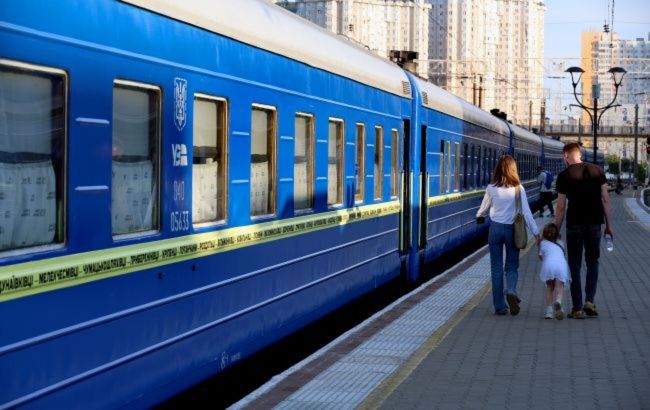Ukraine and Poland sign railway cooperation agreement
 Illustrative photo: Ukrzaliznytsia expands cooperation with Polish railways (Getty Images)
Illustrative photo: Ukrzaliznytsia expands cooperation with Polish railways (Getty Images)
Polish and Ukrainian railways have strengthened their cooperation by signing a framework agreement to ensure safe and uninterrupted cross-border train traffic and to advance joint transboundary projects, according to the Polish Press Agency.
On Tuesday, September 23, at the TRAKO exhibition in Gdańsk, Polish Railway Lines (PLK) and Ukrainian Railways (Ukrzaliznytsia) signed a framework agreement aimed at ensuring safe and uninterrupted rail traffic across the Polish-Ukrainian border.
According to PLK’s press service, the document regulates principles for train operations, infrastructure maintenance, and use, as well as technical parameters on both sides of the border.
The agreement provides for the creation of procedures for local railway border agreements (LRAA) on individual sections. These will govern train schedules, equipment operation rules, staff requirements, and the placement of infrastructure elements of one state on the territory of the other.
The signing not only confirmed existing cooperation but also marked a starting point for future joint initiatives, including international economic projects and cross-border investments.
PLK President Piotr Wyborski emphasized the strategic importance of cooperation with Ukraine for security, efficiency, and supporting the region’s economic development.
The document was signed by Piotr Wyborski and Ukrzaliznytsia board president Oleksandr Pertsovskyi. The agreement is noted as PLK’s first international contract signed during the TRAKO exhibition.
Meanwhile, Ukrzaliznytsia will launch additional regional train services between Lviv and Vorokhta, as well as from Ivano-Frankivsk, on September 27–28 to improve access to mountain destinations.
In September, the railway company is also introducing extra routes to meet growing passenger demand and make travel more convenient.

